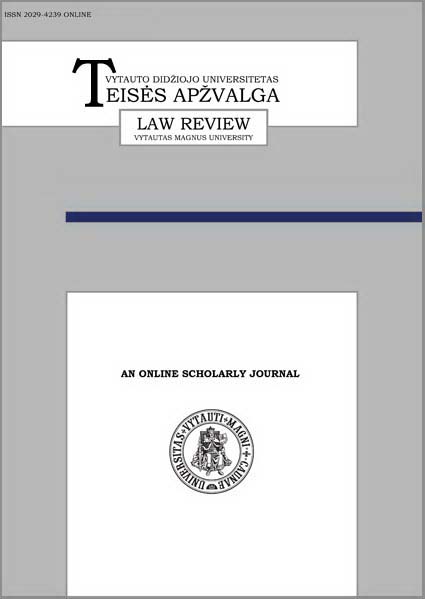Ar mobiliųjų prekybos finansinėmis priemonėmis programų reglamentavimas užtikrina investuotojų teisių apsaugą?
Does the Regulation of Mobile Trading Apps Ensure the Protection of Investors Rights?
Author(s): Živilė RadavičiūtėSubject(s): Law, Constitution, Jurisprudence, Commercial Law
Published by: Vytauto Didžiojo Universitetas
Keywords: Mobile trading apps; Non-professional investors; Customer rights; Gamification; Zero-commission trading; Social (copy) trading;
Summary/Abstract: In recent years, many online brokerage platforms have sought to “democratize” the financial market and provide its access to a much wider range of investors, including inexperienced investors. To achieve this goal, the intermediary companies utilized financial mobile trading apps. With the help of these innovations the access to financial services is expanding, in addition to that, the traditional understanding of how finance works is changing gradually as well. A significant increase of unprofessional investors was noticed in the financial market during the duration of worldwide pandemic of Covid-19. Due to the fact that people had social restrictions, the economy was hard on everyone, more people started using financial mobile trading apps. The first part of this thesis is dedicated to the concept and regulation of the financial mobile trading apps. Also, the revision of which authorities are responsible for ensuring investors' rights and what sources of law enforce it is conducted. The second part of this thesis analyses the rights and regulatory protection that investors receive from the services offered by financial mobile trading apps. In the further parts of this thesis (parts 3-7) major legal issues related to financial mobile trading apps are identified, also, the characteristics of their regulation are examined and, after discussing the existing regulation, it is assessed whether the protection of investors' rights is guaranteed. The methods used in legal science are used in this thesis as well: linguistic, comparative, analytical, systematic, and logical. Linguistic and systematic methods are used for the analysis of legal sources. The comparative method is used to compare legal aspects of regulation. Summaries of source analysis are formulated by the logical method. After examining the legal acts, case law, documents of regulatory institutions, positions and proposals of experts, scientific literature and other sources, the hypothesis raised in this thesis was confirmed. The existing regulation of financial mobile trading apps does not ensure the protection of investors' rights. It was established that the significant increase in the use of mobile financial trading applications and a change in the intermediation environment have clarified these key issues: first, that existing regulations are behind the technological progress, due to that there are regulatory gaps which do not provide full protection for investors; second, the existing regulations are not systematically complied with, in addition to that, the legal framework requires a modification of the legislation. A review of the regulation of financial intermediaries and the adoption of more functional legislation in line with current investment trends would improve the assurance of the rights of financial mobile trading app clients.
Journal: Teisės apžvalga
- Issue Year: 2022
- Issue No: 2(26)
- Page Range: 57-83
- Page Count: 27
- Language: Lithuanian

